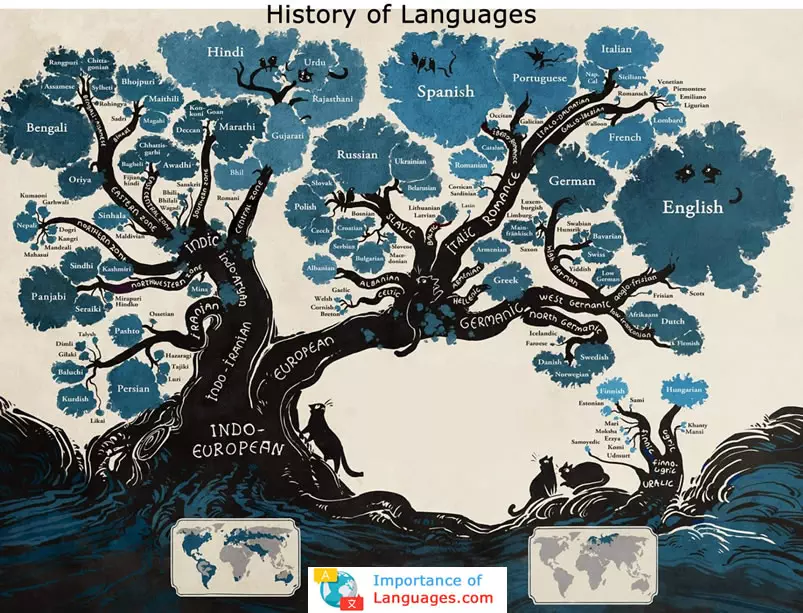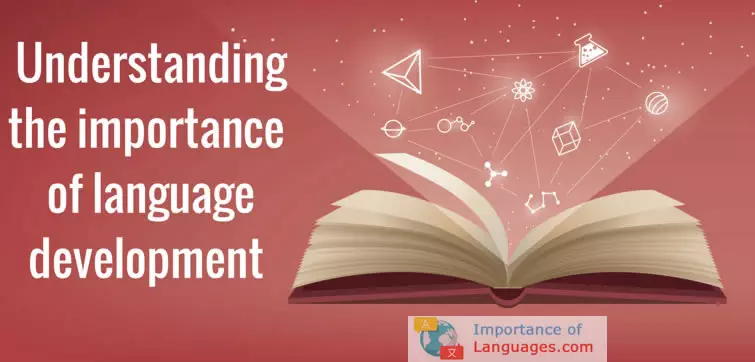
Language is thought to have originated when early humans started gradually changing their primate communication systems, acquiring the ability to form a theory of other minds and a shared intentionality.
This development is sometimes thought to have coincided with an increase in brain volume, and many linguists see the structures of language as having evolved to serve specific communicative and social functions.
Humans acquire language through social interaction in early childhood, and children generally speak fluently when they are approximately three years old.
The history of language has been shaped by major thinkers like:
- Plato
- Rousseau
- Kant
- Ferdinand de Saussure
- Noam Chomsky
Debates about the nature and origin of language go back to the ancient world. Greek philosophers such as Gorgias and Plato debated the relationship between words, concepts and reality.
Gorgias argued that language could represent neither objective experience nor human experience and that communication and truth were therefore impossible.
Plato maintained that communication is possible because language represents ideas and concepts that exist independently of, and prior to, language.
During the Enlightenment and its debates about human origins, it became fashionable to speculate about the origin of language. Thinkers such as Rousseau and Herder argued that language had originated in the instinctive expression of emotions and that it was originally closer to music and poetry than to the logical expression of rational thought.
Rationalist philosophers such as Kant and Descartes held the opposite view. Around the turn of the 20th century, thinkers began to wonder about the role of language in shaping our experiences of the world – asking whether language simply reflects the objective structure of the world, or whether it creates concepts that it, in turn, imposes on our experience of the objective world. This led to the question of whether philosophical problems are really firstly linguistic problems.
The Swiss linguist Ferdinand de Saussure, who defined the modern discipline of linguistics, first explicitly formulated the distinction using the French word language for language as a concept, langue as a specific instance of a language system, and parole for the concrete usage of speech in a particular language.
The resurgence of the view that language plays a significant role in the creation and circulation of concepts, and that the study of philosophy is essentially the study of language, is associated with what has been called the linguistic turn and philosophers such as Wittgenstein in 20th-century philosophy. These debates about language in relation to meaning and reference, cognition and consciousness remain active today.
Why Language Developed?

Language is not the creation of one person or of one period but it is an institution, on which hundreds of generations and countless individual workers have worked. Language is thought to have originated 10,000 BC.
Languages evolve and diversify over time, and the history of their evolution can be reconstructed by comparing modern languages to determine which traits their ancestral languages must have had in order for the later developmental stages to occur.
The production of language is a continuous process; it varies in rate and kind with the circumstances and habits of the speaking community, but it never ceases; there was never a time when it was more truly going than at present.
Language is one of the most marked, conspicuous, as well as fundamentally characteristic of the faculties of Humankind
It raised humans from a savage state to the plane which he was capable of reaching. Humans could not become Humans except by language. An essential point in which man differs from animals is that man alone is the sole possessor of language.
Language is a constituent element of civilization.
Therefore, the importance of language for society cannot be minimised. The importance of language is essential to every aspect and interaction in our everyday lives and for wider society.
